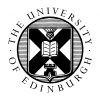© Pint of Science, 2025. All rights reserved.
“How to save a life?” sang the group The Fray in 2005. Providing answers to this question has been one of the biggest drivers of scientific research for a long time. Researchers in Edinburgh are working hard to develop new materials, new cures and new understandings to give us longer and happier lives. Want to know what they’re up to? Come, sit, grab a pint and enjoy.
From cycle paths to seismic maths
Dr. John McDougall
(Reader in Geotechnical Engineering)
Used vehicle tyre arisings in EU in 2016 was about £3.5M. Researchers at Edinburgh Napier University were investigating this resource as a means of improving the durability of off-road cycle paths but the elasticity of rubber-soil mixtures, compared to conventional soils, drew their attention to its beneficial use in the management of seismic disturbances. Earthquakes can be devastating events, often in countries least able to protect themselves. Are rubber soil mixtures at the centre of a low-cost, accessible technology, able to be installed in the ground to protect existing structures?
Microbes, infections and antimicrobial resistance
Dr. Rosalind Allen
(Professor in Biological Physics)
Microbes are by far the most ancient living organisms on Earth and they are essential for the health of the planet, and for our own health. However, they can also cause disease, and disease-causing microbes can evolve to become resistant to antibiotics. This antimicrobial resistance poses an urgent global health challenge. I will discuss from a historical perspective, and from the point of view of a physical scientist, how we came to know what we know about microbes and infections, how antibiotics work and how resistance to them evolves.
Map data © OpenStreetMap contributors.


